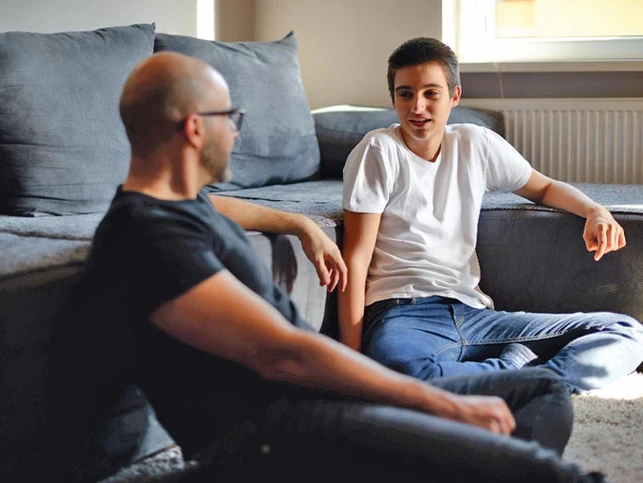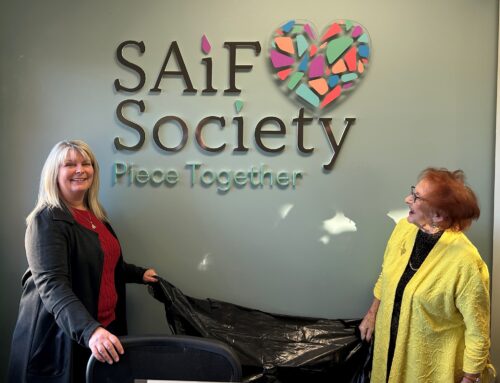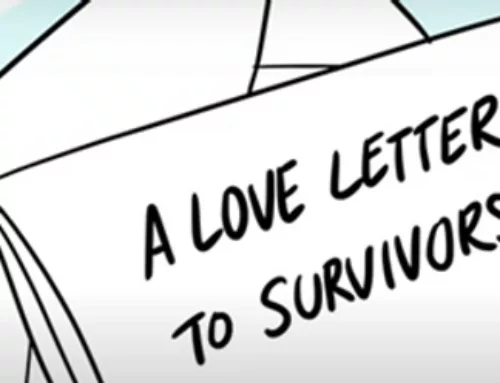There are so many things hurting our youth these days and mental health supports are not always easy to find or to access quickly. We get it. We see a number of children and youth in our programs and they’re struggling, like so many of us, in the midst of this global pandemic.
But the things most on our kids’ minds are the same even outside of a pandemic:
Bullying. Suicide. Online safety. Stress. Anxiety. Self harm. Addiction.
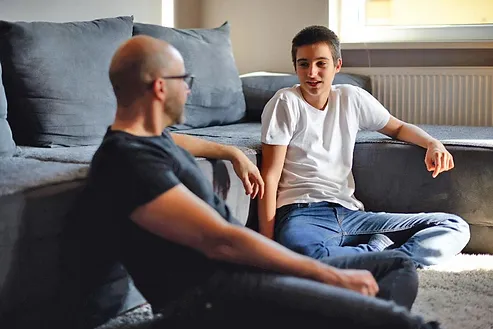
As a parent myself, I know I struggled to talk to my kid or their friends about some of these topics. I was afraid, uncomfortable, and anxious about saying the wrong thing or simply not knowing what to say, even though I knew they may be struggling or dealing with things that I heard in passing. But the research says that talking openly, without judgement, is so important to help a young person’s well-being and mental health. Being a willing ear for a young person who can get perspective, hope and compassion from someone in their life, can be critical in helping them deal with things that can feel overwhelming to them. And sometimes, doing the hard things is just part of being a parent or good mentor, right?
The thing that worked for me was making dinner with my son. There was no uncomfortable eye contact for him and I stayed away from direct questions and instead tried to stay open to letting him talk which helped us both engage in meaningful conversations about what was bothering him, weighing on him, or just everyday stuff. Being available, holding space, holding back my instinct to judge (it can be strong!) has helped us foster a more open relationship. It hasn’t always been easy and not every conversation is a big one, but the conversations themselves and normalizing the habit can be critical. The actual eating dinner part for us was more for ‘lighter conversations’ or watching a fave programme (don’t judge us!) so the making dinner part became the time for our ‘real talk time’.
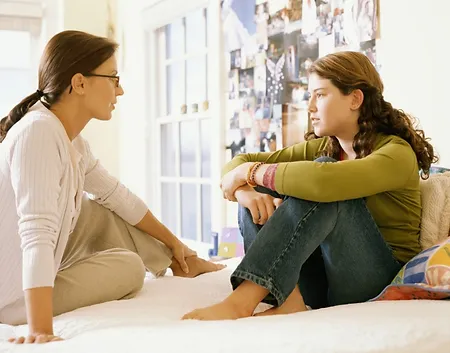
As we’ve said, this isn’t always easy and sometimes, we just don’t know where to start. But Kids Help Phone can help! They have a section on their website devoted to providing tips and tools for how to talk to the young people in your life who may be struggling. These may feel like big topics but these conversation strategies can really help break it down and make it manageable.
Don’t think of them as one BIG conversation but a series of small ones – maybe when you’re making supper like I do, or in the car ride to school:
- starting a conversation about emotional health & well-being
- how to talk to a young person in my life about suicide
- how to talk to a young person in your life about bullying
- cyberbullying: how to support the young person in your life
- fostering hope: how to build resilience in youth
- identity & gender expression: 5 ways to support youth
Want to learn more? Check out their entire list of resources here.
And if you know of a young person or a group of young people struggling – whether they are all on the same sports team or go to the same school, we have a program called SAiF Education where we provide free presentations on bullying, cyber bullying, healthy relationships, healthy dating, setting boundaries and learning about consent. It’s something to offer to your child’s teachers, coaches, schools, teams, in order to help young people build stronger and more empathetic peer networks. You can learn more here.
Looking for more immediate mental health support for your child? Alberta Health has a list of local resources for you or your child to access.
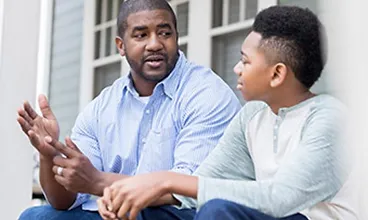
Whatever you do, please keep the lines of communication open between yourself and a young person in your life. You may not always realize the significant impact your words and openness to conversation can have on them. You may not always be perfect (who is?) but if you’re willing and trying and present, what a difference it can make! Because even if it may seem boring or difficult, never underestimate the power of being there and being a safe person to talk to for a young person you know who may be struggling or feeling overwhelmed.
